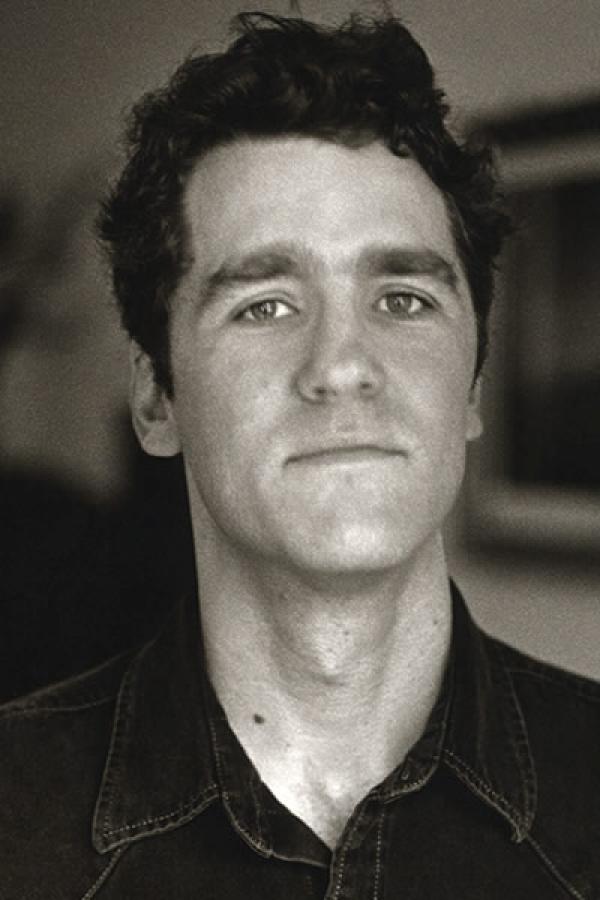Christian Hawkey

Photo by Timm Kōlln
Bio
Christian Hawkey has written two full-length poetry collections: The Book of Funnels (Wave Books, 2005) and Citizen Of (Wave, 2007); four chapbooks: Hour Hour (Delirium Press, 2005), Petitions for an Alien Relative (Hand Held Editions, 2009), Ulf (Factory Hollow Press, 2010), and Sonette mit Elizabethanischem Maulwurf (hochroth verlag, 2010); and the cross-genre book Ventrakl (Ugly Duckling Presse, 2010). In 2006 he received a Creative Capital Innovative Literature Award. In 2008 he was a DAAD Artist-in-Berlin Fellow. A new book, Sonne from Ort, a collaborative bilingual erasure made with the German poet Uljana Wolf, appeared in 2013 (kookbooks verlag, Berlin). He co-translates, also with Uljana Wolf, the late short prose of the Austrian writer Ilse Aichinger.
Translator's Statement
"Bad Words" is a text from Ilse Aichinger's short prose collection Schlechte Wörter, published in 1976. It experiments with what she described as a new aesthetic of only "the second-best words." In this way her later work deploys what might be called an aesthetic of failed translation.
from "Bad Words" by Ilse Aichinger
[translated from German]
I now no longer use better words. The rain which pounds against the windows. Previously something completely different would have occurred to me. That's over now. The rain which pounds against the windows. That's sufficient. By the way I just had another expression on the tip of my tongue and it wasn't only better, it was more precise, but I forgot it while the rain was pounding against the windows or was doing what I was about to forget. I am not very curious about what will occur to me during the next rain, whether light or heavy, but I suppose one turn of phrase will suffice for all types of rain. I won't care whether one can say pound when it only gently touches the window panes, whether that wouldn't be saying too much. Or too little, when it's about to shatter the panes. I'll leave it at that now, I'll stick with pound, the rest is for others to care about.
To drag the downfall in front of oneself, this also occurred to me, it's certainly even more indefensible than pounding rain, because you don't drag something in front of you, you shove it or push it, carts for example or wheel chairs, while other things such as potato sacks are dragged behind -- other things, certainly not downfalls, those are transported differently. I know this, and again the better phrase was just on the tip of my tongue, only to escape me. I don't mourn its loss. To drag the downfall in front of oneself, or better the downfalls, I won't insist on this, but I'll keep it. Whether one can say I decide on it is questionable. Up to now standard usage doesn't allow for a decision where merely a possibility is at stake. One could discuss it, but I'm fed up with these discussions –– mostly held in taxis on the way out of the city –– and I make do with my indefensible expressions.
Of course I won't be able to use them, but I pity them just as I pity stage prompters and opera glass manufacturers -- I'm beginning to have a weak spot for the second and third best, in front of which the best hides quite shrewdly, if only with regard to the fourth best, since to the audience it shows itself often. You can't resent it for that, the audience expects it after all, the best has no choice. Or has it? With regard to the audience couldn't it hide, and show its face instead to the weaker possibilities? One has to wait and see. There are enough adequate rules––things that are hard to learn –– and if I'm relying on the inadequate, that's my problem.
About Ilse Aichinger
Ilse Aichinger (1921-) is considered one of the most important writers of the postwar German literatures. Her innovative and often radical body of work -- including short stories, poems, radio plays, dialogues, aphorisms, essays, prose poems and one novel -- has been awarded more than twenty prizes, including the Georg Trakl Prize (1979), the Franz Kafka Prize (1983), the Austrian State Prize (1995) and the Joseph Breitenbach Prize (together with W.G. Sebald and Markus Werner, 2000).

